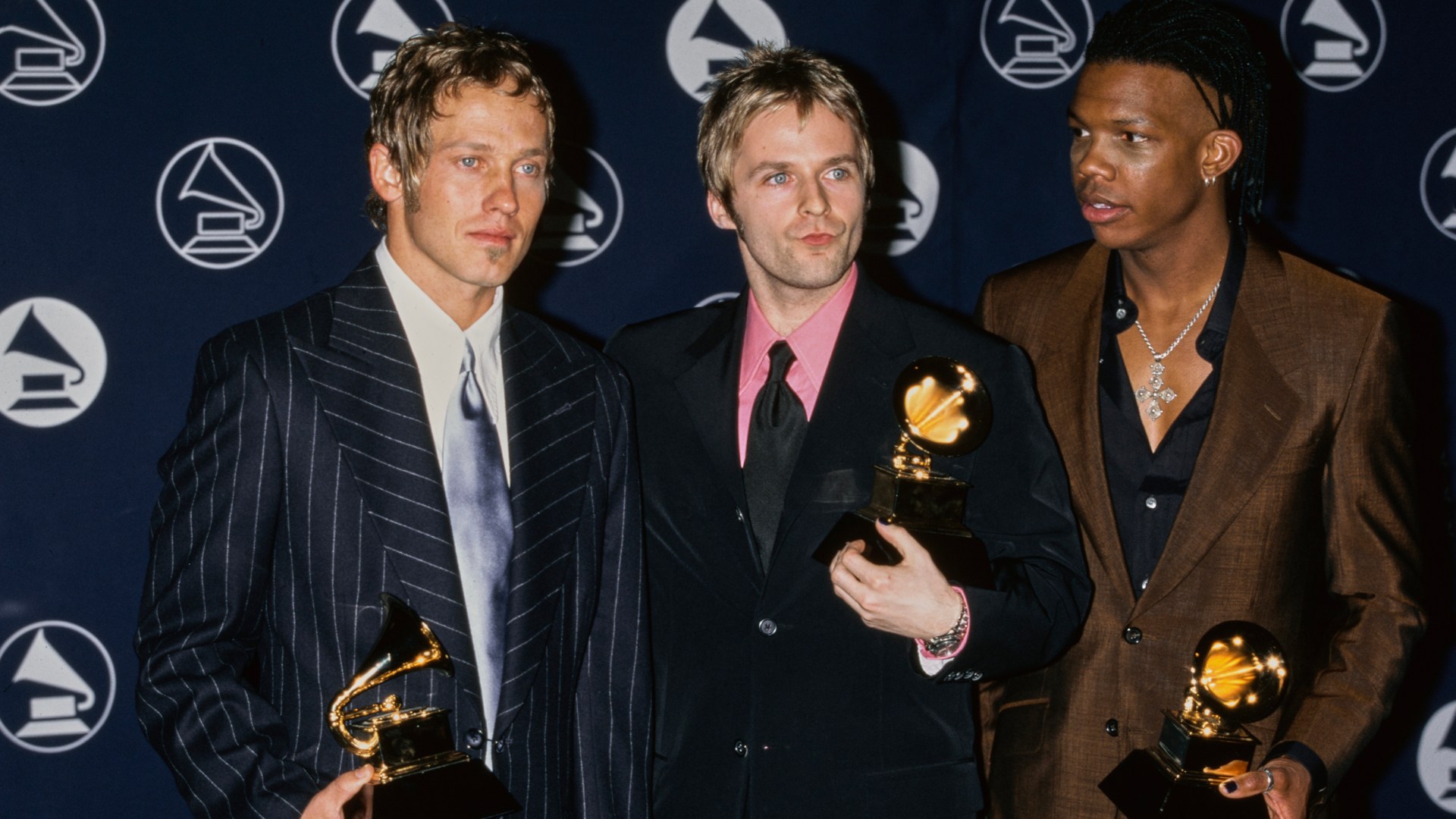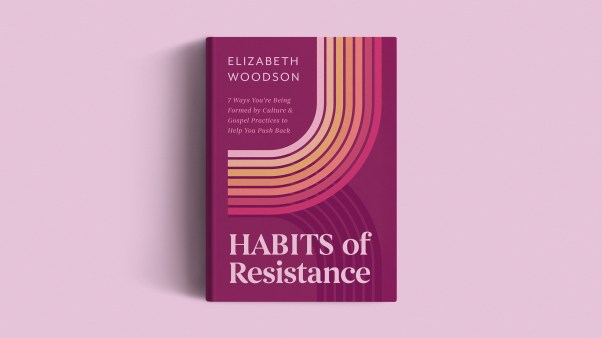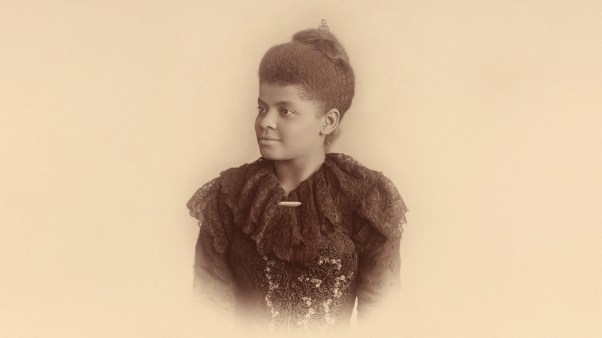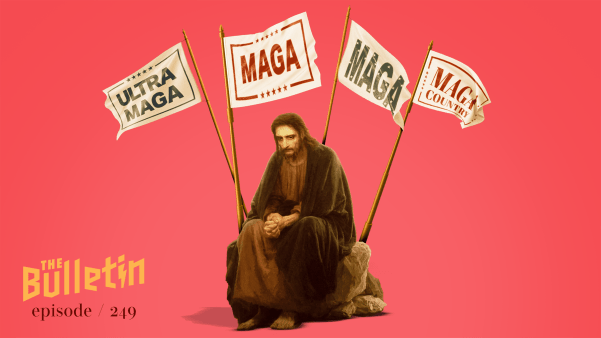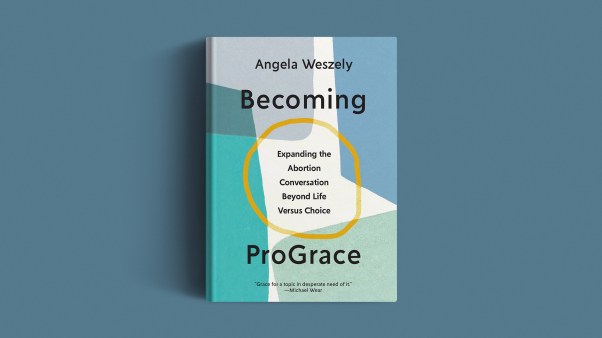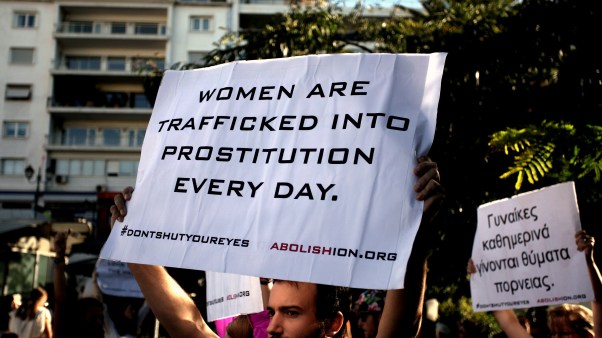This piece was adapted from Russell Moore’s newsletter. Subscribe here.
A friend and I were talking once about the first concerts we ever attended. His was Van Halen; mine was Amy Grant.
“Okay, second concert?” he asked.
Him: Mötley Crüe. Me: Petra.
After a minute or two of silence, he said, “You realize we would have hated each other in middle school, don’t you?”
One of us was part of a sheltered subculture quickly passing away. The other listened to music that was a gateway drug to what some say led to riots and rebellion. Turns out, my musical taste, not his, was the dangerous one.
In her new book, God Gave Rock and Roll to You: A History of Contemporary Christian Music, scholar Leah Payne argues that anyone wishing to understand some of the most epochal shifts in American culture and politics over the past 30 years ought to listen to the radio—specifically to the contemporary Christian music (CCM) genre of a generation of white evangelicals.
Payne writes that teenage kids like me were actually not the market for the CCM industry of the 1980s, 1990s, and early aughts. Our moms were. Payne reveals industry executives even had a collective name for the suburban middle-class mother who sought out Christian alternatives to popular music for her children: “Becky.”
The second avenue was the vibrant youth group culture of the time (where I came to love CCM). Payne writes: “The quirk of CCM’s business model—that the bulk of its sales came not through mainstream retailers marketing directly to teens, but through Christian bookstores who marketed primarily to evangelical caregivers interested in passing the faith to their children—became its defining characteristic.”
The problem for “Becky,” according to Payne, was that in households where only “Christian music” was allowed, the very way a parent could convince an adolescent that he or she wasn’t missing out on anything became the very problem the caregivers were trying to overcome. Some of these kids, Payne notes, used the CCM comparison charts “to reverse engineer their listening tastes.” She quotes one CCM listener saying, “The charts said I would like Audio Adrenaline if I liked the Beastie Boys. That’s how I fell in love with the Beastie Boys.”
How does an industry solve that problem? Payne argues that one key way was to convince the Christian kids that they were the edgy ones—the non-conforming “Jesus Freaks” willing to pray in public and to abstain from sex until marriage. Citing DC Talk’s “Jesus Freak” music video, Payne writes: “Christian teens who listened to CCM were not just geeky youth-group kids, the video suggested—they were rebels fighting against immoral, oppressive mainstream culture.”
I disagree with her at the margins, here, in that I think “Jesus Freak” was well within the bounds of a call for Christian distinctiveness. But Payne is certainly correct that an entire genre of songs went beyond this to suggest that the kid who feels made fun of for attending a See You At The Pole prayer event is being persecuted by a hostile culture in almost the same way as Shadrach, Meshach, and Abednego.
Should conservative Protestant teenagers and college students be rightly equipped for the fact that they will be out of step with their peers in modern American culture? Yes.
The problem, though, is that Augustine’s City of God would not sell very well in a 20th- or 21st-century American Christian market. The nuanced truth that “You will be made to feel strange at times for following Christ, but you’re not under persecution (and, by the way, you’re not nearly strange enough in the ways Jesus actually called you to be)” isn’t nearly as exciting as, “This is the terminal generation. The elites are out to destroy you, and you are the only thing standing between Christian America and the New World Order.”
“God wants what you want (for you to be happy and healthy and flush with cash)” sells. So does “You’re the real America and everybody else wants to kill you.” Messages of actual cross-bearing and a cruciform life, however, do not sell well at all.
In Payne’s analysis, the business model of CCM looked to the marketplace “for signs of God’s work in the world,” with the top-selling artists and products reflecting “a consensus among consumers about what constituted right Christian teaching about God, the people of God, and their place in public life. Certain ideas thrived in large part because they appealed to white evangelical consumers. Other ideas faltered because they could not easily be sold.”
To some degree, that’s to be expected. The music business is, after all, a business. But, as Payne points out, some reformers (including my now CT colleague Charlie Peacock) warned of ways the business model could be at cross purposes with the teaching power of music—and many artists (such as the late Rich Mullins and Michael Card) charted a different, more theologically grounded and biblically holistic course.
When the consensus determines what’s acceptable as a Christian and what’s not, one cannot help but end up with what The Guardian identified as a “market-driven approach to truth,” in which a group ends up “finding most hateful to God the sins that least tempt its members, while those sins that are most popular become redefined and even sanctified.”
The problem for all of us is that ideas of God’s blessing and spiritual warfare can be reverse engineered too. When the business model for Christian bookstores and CCM faltered, what many found would still appeal was politics. When music about God and Christ were not bringing in money, talk radio stations using apocalyptic language about flesh-and-blood enemies still could.
The alcoholic whose life is being messed up by his addiction is often in a stressed state of crisis because of the alcohol—a problem that he or she believes can be solved by more alcohol. A Christianity fearful of a secularizing America can often become shrill and extremist, driving away many people to whom we can then point and say, Look at how the country’s secularizing! We need more fear of it!
So the cycle moves ever along.
And, as with every ideology in any generation, once a religion becomes perceived as a means to an end, it first draws those who care about the religion, and then it draws those who care about the end—be it “values voters” politics or “liberation theology” politics. After that, it ends up with those who really care about the end and start to see parts of the religion as the problem. Finally, it results in those who figure out they can get to the end without the religion. One can eat lots and lots of food and play football, even without following anybody to their Father’s house—as long as you fight for your right to party.
On the Left and now on the Right, the kids can look at the comparison chart and go for the real thing, whatever it is—whether it’s the Marxist dialectic or the white identity ethno-nationalism. When the market is the measure of truth, and the market becomes disenchanted with its own mission, it is very hard to remind people who they once believed themselves to be.
Contemporary Christian music, flawed as any human endeavor is, was a positive force in my life. The music of Amy Grant and Rich Mullins went with me through an adolescent spiritual crisis and are probably part of the reason I came out of it more Christian than I went in. I’m amazed by how much of my incipient theology—convictions I teach to this day—was taught to me by Petra lyrics. I have never, not once in 30 years of ministry, preached Romans 6 without hearing their “Dead Reckoning” song in my mind.
I learned how to read biblical narrative Christologically, how to understand parable and poetry and paradox, from the lyrics of Michael Card. I might be embarrassed to tell you how often, in the middle of dark times, what strengthens me are words like “Where there is faith / There is a voice calling, keep walking / You’re not alone in this world” or “I’ll be a witness in the silences when words are not enough” or “God is in control / We will choose to remember and never be shaken.” None of that may be rock-and-roll, but I will die believing that God gave that to me.
And I see a new generation of musicians and songwriters who are preparing—often without institutional props—to drive others to the actual Bible, to the actual Jesus, whether it sells or not. The path from CCM glory days to an evangelicalism in crisis should inform us—and Payne’s book does that brilliantly.
But it’s also true that some of the reverberations of grace from those years still ring in some of our ears. I don’t want to reverse engineer that. We need all the music we can get, especially that which doesn’t just reinforce what already stirs our passions, what already makes us afraid.
There’s room for that. It’s a big, big house.
Russell Moore is the editor in chief at Christianity Today and leads its Public Theology Project.

